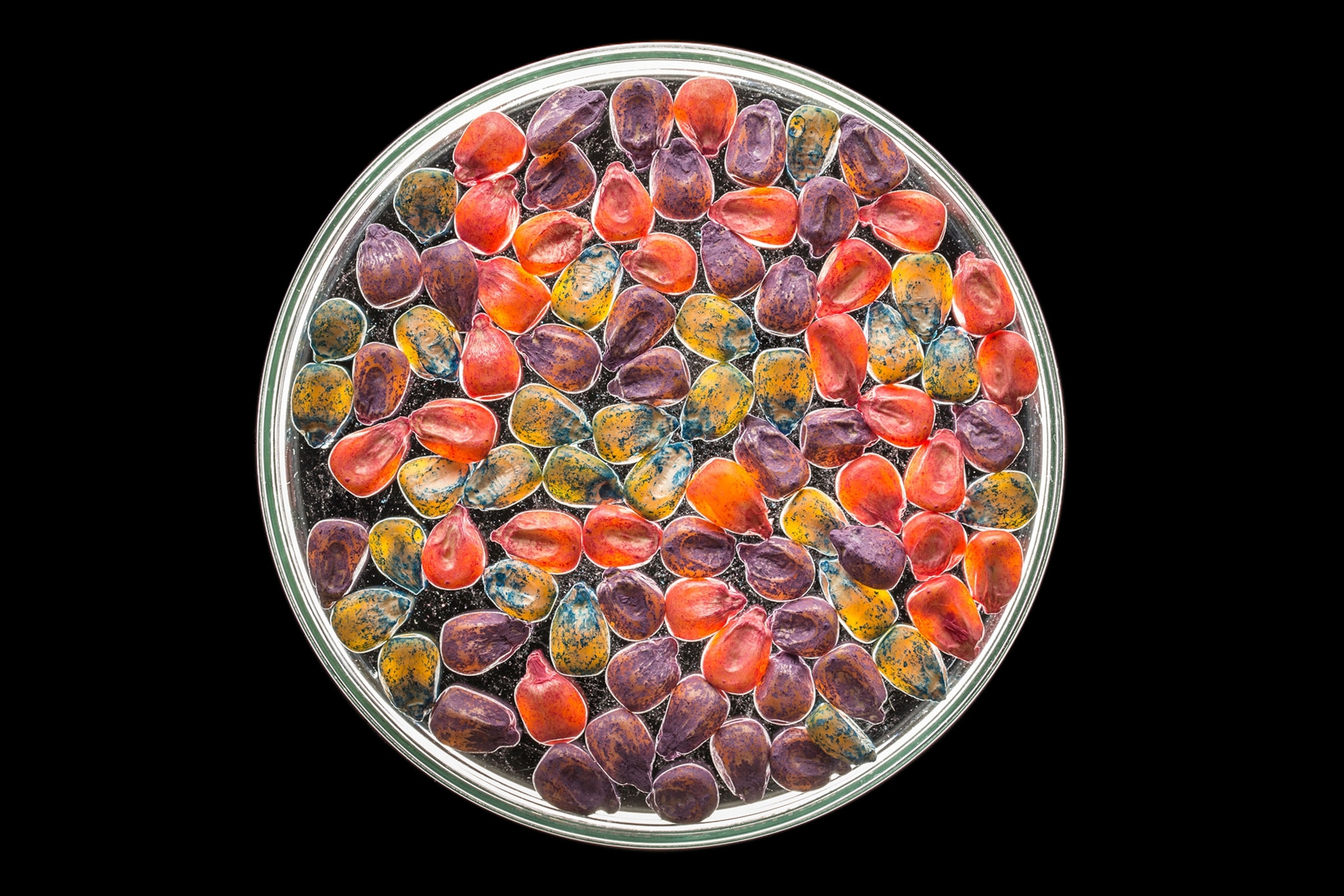
These Pesticides Could Be Birth Control for Bees
The world's most widely used insecticides leave drones with less sperm for their queen. Could this be a factor in the worldwide collapse of honeybee colonies?
The world’s most widely used pesticides may be acting as birth control for male bees, according to new research published Tuesday.
Male honeybees exposed to neonicotinoid insecticides produced fewer living sperm cells than unexposed males.
The study by scientists in Switzerland is the first to examine the effects of this class of pesticides, which has been linked to honeybee die-offs in recent years, on the fertility of male bees. “Our data highlight one possible way that neonicotinoids can affect honeybees,” said senior study author Geoff Williams, a bee researcher at the University of Bern in Switzerland.
Male honeybees, called drones, serve one purpose—to mate with a queen. Because their main contribution to the colony comes in the form of sperm, they often are overlooked in studies of colony survival. Yet poor mating can take a toll on the productivity of a queen bee and the success of a colony.
Future research is needed to understand what the effects on sperm might mean for honeybee reproduction in the natural environment, according to the researchers.
What exactly did the pesticides do to the males?
The researchers tested drones from hives exposed to two insecticides, thiamethoxam and clothianidin. They chose these two chemicals because their use in the European Union is under review due to concern over pollinator declines. The drones were exposed to amounts of pesticides that are comparable to what honeybees could naturally encounter in pollen.
Compared to drones from colonies with no pesticide exposure, the test drones produced 39 percent fewer living sperm. They also averaged 8 to 11 percent lower sperm viability, which takes into account the percentage of living versus dead sperm. Queens only use living sperm to fertilize eggs.
Is this the cause of widely reported colony failures?
That remains unknown.
Over the past decade, beekeepers in North America and Europe have lost on average about 30 percent of their hives each year. Declines in wild pollinators, including bumblebees and Monarch butterflies, have occurred over the same period. Researchers suspect there’s more than one cause for colony failures. A number of important factors are beginning to emerge, including disease, parasites, and habitat loss.

There’s a growing body of evidence, too, that neonicotinoids may have sublethal effects, says Dennis vanEngelsdorp, a bee researcher at the University of Maryland who was not involved in the new study. “There may not be a pile of dead bees right away, but we’re beginning to find that these exposures may be hurting and slowing down colonies in more insidious ways,” he said.
Experts worry the problem may be bigger than one or two pesticides. Bees are exposed to a number of chemicals as they forage for honey and nectar. One recent study found 30 different pesticide residues in pollen stored in beehives. “We know almost nothing about the additive effects or synergy between all these different exposures,” said Dave Shutler, an ecologist at Acadia University in Nova Scotia.
What about the health of the queens?
Honeybee queens, which will mate with several drones, store a small amount of sperm from each mating. Then they use that stored sperm to lay eggs for the rest of their lives. Fewer living sperm cells could spell trouble for the colony if the queen can’t get enough viable sperm or if she has to leave the safety of the hive to go on additional mating flights, explains Lars Straub, a PhD student at the University of Bern.
Beekeepers in North America and Europe consistently report poor queen health as a major cause of colony losses, but no one knows why, Williams says. Queen bees that are in poor health often lay fewer fertilized eggs. Previous research has linked neonicotinoids to impaired queen bee reproduction and survival.
“I think this [sperm] study is another indication that exposures to these chemicals may be having multiple effects,” vanEngelsdorp says.
What are neonicotinoids and how are they used?
Neonicotinoids kill pests by messing up their nervous systems. They were introduced in the late 1980s as a safer alternative to older insecticides that are more toxic.
Neonicotinoids are different than other pesticides because they get absorbed into all of the plant’s tissues—from the sap to the leaves to the pollen. This makes them really effective against sucking insects, such as aphids.
In agriculture, neonicotinoids are applied as seed coatings to crops like soy beans and corn. As the seed germinates, the chemical coating gets taken up into the growing plant tissue.
They are used in lawn and garden treatments, too.
Crops like corn and soybeans depend on wind—not pollinators—to spread their pollen. Honeybees can be exposed to neonicotinoids when pollen from these plants blows onto nearby flowers where they may be foraging.
The U.S. Environmental Protection Agency is reviewing the effects of several neonicotinoids on honeybees and other pollinators to determine whether to restrict their use.